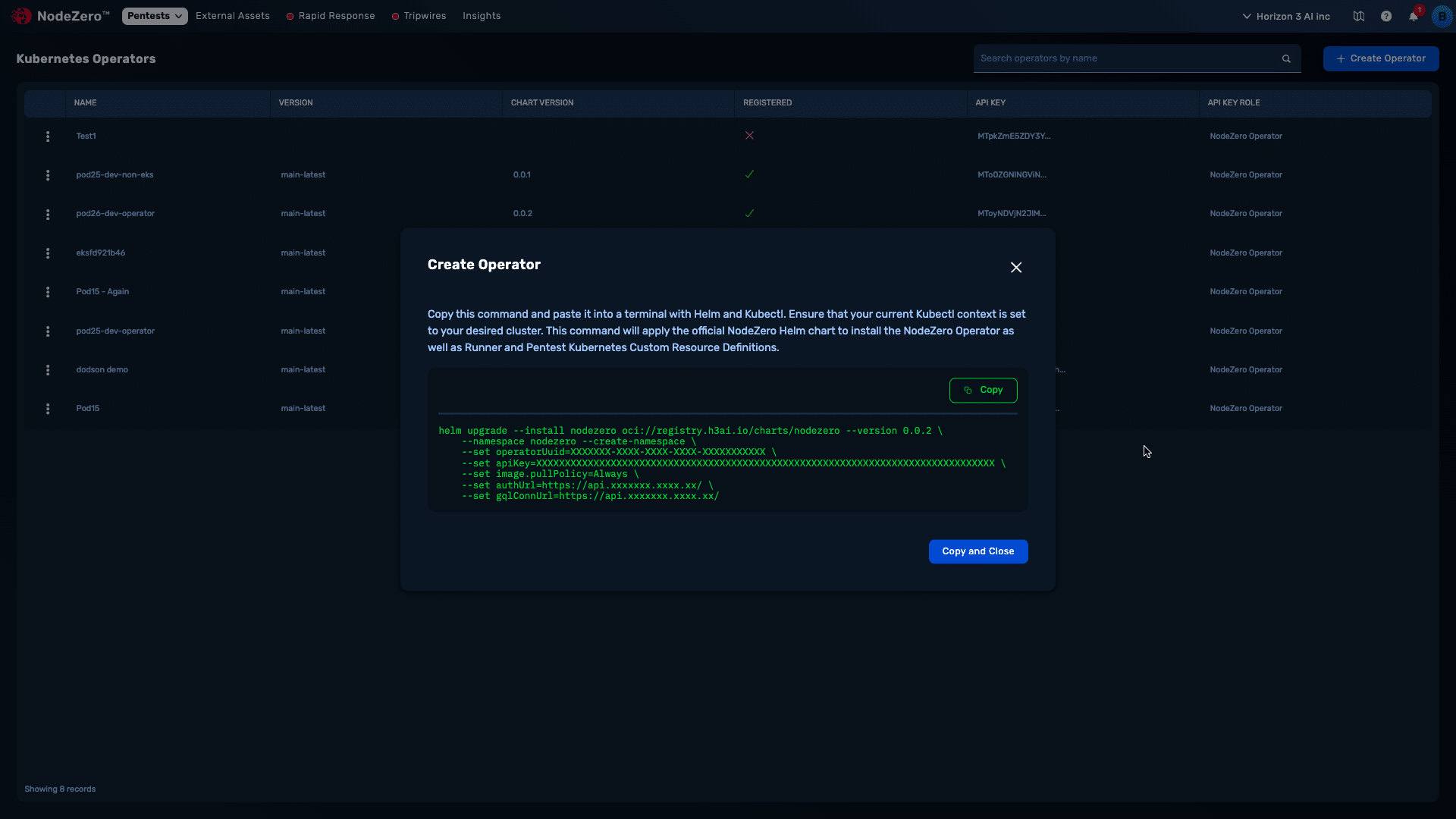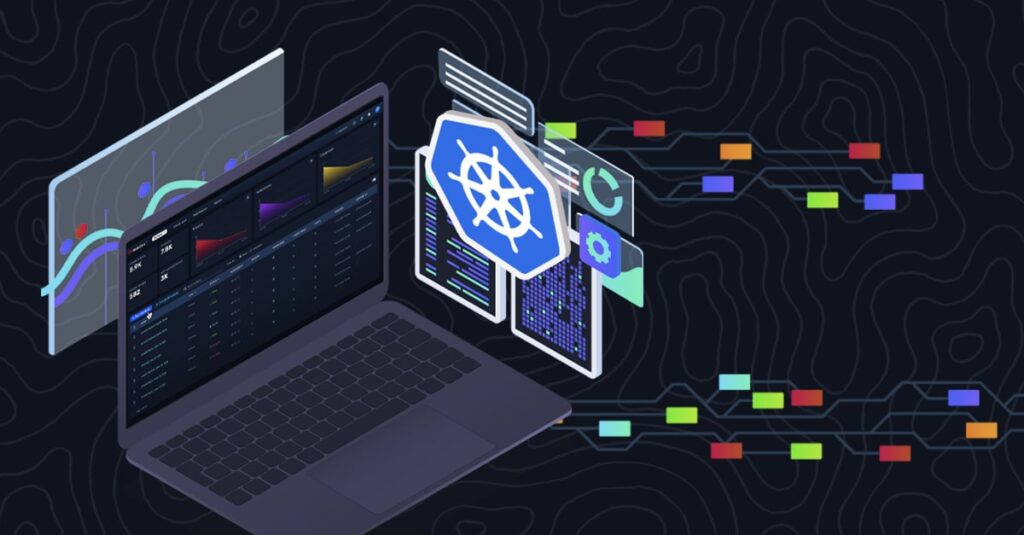With the rise of containerized applications, Kubernetes has become the default choice for orchestrating and scaling containers. However, this massive adoption has also made Kubernetes clusters a prime target for cyber attackers. The increasing complexity of Kubernetes environments, coupled with a lack of stringent security measures, creates a perfect storm for vulnerabilities to go unnoticed. Recent high-profile attacks on Kubernetes clusters have highlighted the need for proactive security measures, and NodeZero’s Kubernetes Pentesting is uniquely positioned to address these challenges. Given that Kubernetes is used by organizations that require flexible, scalable, and highly available assets, identifying any exploitable vulnerabilities in this central orchestration tool should be treated as an immediate threat to business continuity.
Kubernetes Attacks and Weaknesses
Kubernetes, while powerful, has numerous security pitfalls that can be exploited if not properly secured. Here are a few documented attack scenarios that emphasize the necessity of focused security testing in Kubernetes environments:

- Cryptojacking Incidents
Kubernetes clusters have become a target for cryptojacking attacks, where malicious actors hijack computing resources to mine cryptocurrency. In a significant incident in 2020, attackers exploited an unsecured Kubernetes dashboard and access keys to infiltrate an entire cluster. Cryptojacking is particularly dangerous in Kubernetes environments because the horizontal scalability of clusters allows attackers to use vast resources, which can go undetected for extended periods. - Data Exfiltration via Misconfigured RBAC
Role-Based Access Control (RBAC) is essential to limiting access to sensitive resources within a Kubernetes cluster. In 2021, researchers at Palo Alto Networks discovered that misconfigured RBAC settings in numerous Kubernetes clusters allowed unauthorized access to sensitive data and configurations. By exploiting these settings, attackers could access databases and steal data, leading to substantial financial and reputational damage. - API Server Exposure
The Kubernetes API server is a high-value target, as it controls nearly all aspects of a cluster’s operations. In multiple documented cases, organizations have mistakenly exposed the API server to the public internet, giving attackers a direct route into the cluster. Once inside, malicious actors could pivot laterally, gaining access to pods and even underlying infrastructure if not properly segmented.
These examples underscore that Kubernetes-specific vulnerabilities can have devastating consequences if exploited. Regular security testing that thoroughly probes Kubernetes’ unique architecture is essential to prevent such incidents.
Common Kubernetes Weaknesses
Understanding specific vulnerabilities in Kubernetes is crucial for defending against attacks. Here are some of the most common weaknesses found in Kubernetes environments:
- Inadequate Network Segmentation
Kubernetes networks are often overly permissive, allowing pods and services to communicate without strict boundaries. This lack of segmentation enables attackers to move laterally within the cluster, increasing the risk of sensitive data exposure. - Excessive Privileges in Containers
Running containers with elevated privileges or without security policies opens the door for privilege escalation attacks. Once an attacker gains access to a container with unnecessary privileges, they can exploit it to affect other parts of the cluster or even the host. - Misconfigured Secrets Management
Kubernetes secrets, if improperly managed, can be accessed by unauthorized users. Secrets are often stored in base64 encoding, which is easily decoded if an attacker gains access. Many organizations fail to implement encryption or strict access controls for these secrets, exposing sensitive credentials and tokens. - Insecure Default Configurations
Kubernetes installations typically have default settings that prioritize functionality over security. Many clusters are deployed with unrestricted access, unprotected dashboards, or publicly exposed API servers, providing an easy entry point for attackers.
These weaknesses illustrate the critical need for comprehensive and frequent security assessments in Kubernetes environments.
The Gap in Kubernetes Security Talent
Since Kubernetes technology entered the mainstream around 2016, it’s still relatively young, with less than a decade of widespread use. Building and managing Kubernetes infrastructure requires not only specialized skills in container and cloud software but also security expertise, which is in high demand and often costly. This talent is typically under pressure to deliver features and functionality rapidly, making it challenging to maintain a secure environment amid fast-paced production cycles.

This combination of rapid development and scarce talent can lead to inevitable mistakes or oversights in configuring and securing clusters. Organizations who capitalize on Kubernetes need an autonomous tool that consistently supports these specialized teams, allowing them to focus on building efficient clusters while ensuring security remains at the core of their operations.
How NodeZero Enhances Kubernetes Security
NodeZero Kubernetes Pentesting provides an essential layer of protection by autonomously identifying and validating security risks and exploitable weaknesses in Kubernetes clusters. Here’s how it addresses the unique security needs of Kubernetes:
- Automated Detection of Misconfigurations
NodeZero actively scans for and identifies insecure configurations in Kubernetes clusters. This includes detecting exposed API servers, misconfigured RBAC, and lack of network segmentation. By simulating attacks that real-world adversaries might employ, NodeZero provides a clear view of your cluster’s vulnerabilities, allowing your security team to address them before they are exploited. - Privilege Escalation Testing
NodeZero verifies that containers are running with appropriate privilege levels by conducting privilege escalation tests. Through controlled testing, it identifies opportunities where attackers could elevate their access within the cluster, giving you actionable insights on misconfigurations, excessive privileges, and pod or cluster escapes. - Secrets Management Validation
By assessing the configuration and access permissions of Kubernetes secrets, NodeZero helps you ensure that sensitive information is appropriately encrypted and safeguarded. NodeZero’s assessments reveal whether secrets are accessible to unauthorized users and identify any weak permissions, allowing you to tighten controls on critical data. - Continuous, Real-time Security Assessment
Kubernetes clusters are highly dynamic environments where workloads, containers, and configurations change frequently. NodeZero’s autonomous pentesting continuously evaluates your cluster’s security, providing up-to-date insights on emerging risks. This continuous validation is essential for maintaining a secure posture in the face of frequent updates and scaling activities. - Detailed Reporting and Actionable Remediation Steps
NodeZero provides comprehensive reports that go beyond identifying vulnerabilities by offering actionable remediation steps. This helps your security and DevOps teams prioritize and address high-impact risks effectively, ensuring that fixes are implemented and verified, reducing the window of exposure.
The Role of Proactive Security in Kubernetes
The complexity of Kubernetes environments and the volume of potential attack vectors make proactive security essential. Waiting for a breach is no longer a viable strategy. With NodeZero’s Kubernetes Pentesting, organizations gain a defense-in-depth approach, safeguarding their clusters against the unique challenges posed by containerized applications.
By integrating Kubernetes pentesting into your security strategy, you are ensuring that your Kubernetes environment is continually assessed, patched, and fortified against both new and existing threats. NodeZero’s autonomous, continuous pentesting approach helps bridge the gap between DevOps speed and security, enabling secure Kubernetes deployments at scale.
Conclusion
Kubernetes security is an area that no organization can afford to overlook. Recent attacks demonstrate that misconfigured clusters are a primary target for attackers, especially as more organizations rely on Kubernetes to run critical applications. With NodeZero’s Kubernetes Pentesting, you can proactively secure your clusters, identifying weaknesses before they become exploited vulnerabilities.
By automating the pentesting process and continuously validating the security of your Kubernetes clusters, NodeZero empowers your team to stay ahead of attackers, making your containerized environments resilient, compliant, and ready to handle today’s sophisticated cyber threats.

